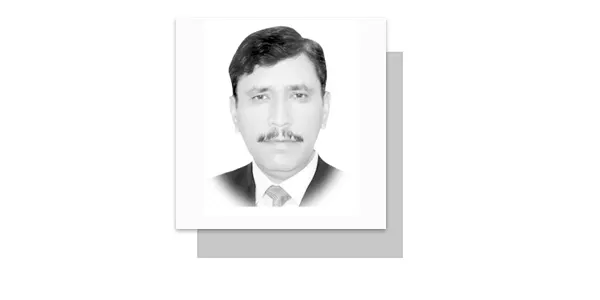PAKISTAN faces a daunting predicament rooted in a history of policies that favoured the elite, fostering a capitalist system that nurtured monopolies. To break free from this intricate web, Pakistan must embolden its citizens through grassroots democracy, placing human dignity at the forefront and harnessing the force of patriotism to instigate transformative change, ultimately securing a brighter and more prosperous future.
The country finds itself trapped in a quagmire, characterized by a capitalist system that has nurtured monopolies and made it challenging for democracy to protect the common citizens from oppression. This situation has been exacerbated by a history of economic policies that favoured the elite at the expense of the general masses. To address these challenges and pave the way for a brighter future, Pakistan must embark on a multifaceted journey.
During Ayub Khan’s era, the seeds of industry were sown with foreign loans, but the burden of these debts was ultimately passed on to the common people. Subsequently, during the Musharraf era, regulatory bodies and grassroots democracy were ostensibly introduced to safeguard the interests of the people; however, the true beneficiaries often remained the wealthy elite.
In the early ’90s, Pakistan sought foreign loans to boost productivity and reform the revenue system under democratic governance. The Investment Protection of Economic Reforms Act (PERA) was enacted to enhance capital flow. However, corruption, a lack of the rule of law and an uneven playing field for investors led to more capital flowing out of the country than returning.
In 2006, erstwhile political adversaries came together through the Charter of Democracy, promising economic liberalization, regulatory bodies and local governments. A National Reconciliation Ordinance (NRO) paved the way for the return of top leadership and their participation in general elections. The plan seemed promising—a capitalist system coexisting with democracy to prevent the moneyed elite from monopolizing power. However, this vision faltered as opposing political parties aligned, fixating on implementing a two-party system. In their home provinces of Punjab and Sindh, dynastic rule remained entrenched, while regions like Pakhtunkhwa, Azad Kashmir, Gilgit-Baltistan and Balochistan were meant to be governed alongside nationalists.
Rather than being revitalized, local governments were suspended, effectively denying the people equitable resource distribution and the resilience needed to withstand economic challenges and natural disasters. This action also squandered the opportunity for advancing toward the Millennium Development Goals (MDGs). Furthermore, loans from international institutions, including the IMF, originally intended for revenue system reform, were wielded as tools by dominant political parties to consolidate and perpetuate their power.
As political foes turned friends, the concept of accountability eroded. Education and healthcare funding dwindled, favouring the private sector, while regulatory bodies were weakened, granting the capitalist class unchecked power. While gross national income surged, wealth inequality grew, burdening the poor and the middle class with the responsibility of repaying debts through indirect taxes, such as a high GST on energy and food.
Meanwhile, Pakistan’s neighbours, including India, China, Iran and even Afghanistan, managed to progress despite their tumultuous histories, thanks to a driving force—patriotism. This sentiment supported their currencies and human development, highlighting the importance of a unified national spirit.
In 2018, a new political party emerged in Pakistan with a promising agenda for change, aiming to address the country’s challenges. Despite garnering significant support from various stakeholders, including the electorate and donors, the party could not deliver as per the expectations of the masses. The irony is that the party was even unable to introduce a local government system in Punjab, which is the largest province of Pakistan. In the meantime, due to a loss of parliamentary majority, the party was voted out of power. This episode underscores the complex and often tumultuous nature of Pakistani politics.
Today, Pakistan faces a challenging situation where securing external loans is nearly impossible and obtaining loans domestically is increasingly precarious. Continuing to pay off bank loans by imposing taxes on electricity bills and petroleum products has strained the population. Demand for petroleum products is waning due to soaring costs and the electricity season is winding down.
The core of the issue undoubtedly rests with the people who wield the decisive influence in escaping the current quagmire. The survival of the economy and the vigour of democracy hinge upon bolstering their purchasing power and elevating their quality of life. The road ahead may be lengthy, but the concise solution is clear—it commences with grassroots democracy upheld by a legal framework that champions human dignity.
If the elite have faltered by succumbing to the lure of greed and relinquishing the nation’s affairs to international moneylenders, it is now imperative to empower the populace to embrace the essence of democracy and savour the fruits of freedom. This endeavour transcends mere economic resurgence; it is fundamentally about safeguarding the nation’s prosperity and, as a result, ensuring its sovereign existence.
—The writer is politico-strategic analyst based in Islamabad.
Email: riaz.missen@gmail.com










